Posts Tagged ‘turn the page book club’
Posted on: November 23rd, 2016 by Waterloo Region Crime Prevention Council
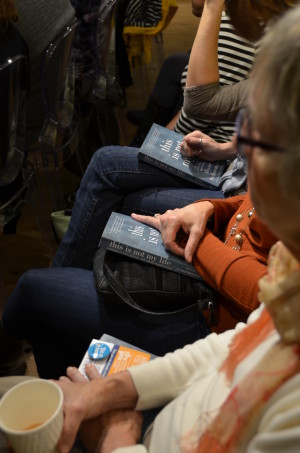 All of the calls to action already mentioned in the previous blog posts (humanizing people in prison & advocating for programs that work) help to create and strengthen system change in big and small ways. The work of larger structural change is long term, often slow work: Not for the faint of heart, but everyone can still play a role.
All of the calls to action already mentioned in the previous blog posts (humanizing people in prison & advocating for programs that work) help to create and strengthen system change in big and small ways. The work of larger structural change is long term, often slow work: Not for the faint of heart, but everyone can still play a role.
Here are a few ways you or your friends can contribute toward society and system changes.
- Male Allies Against Sexual Violence – Through public education, the Male Allies program invites men and boys to be leaders in the work of ending gender-based violence. Their goal is to encourage critical introspection in men and boys, which begins by helping them to understand gender-based violence as a men’s issue. Over the past eight years, they have offered hundreds of workshops to thousands of men and boys and have just started a ground-breaking training initiative with the Ontario Hockey League.
- Learn more about the root causes of crime. In order to prevent something, it’s important to understand the contributing factors. As a community, we have the responsibility to address these conditions which hinder healthy development and can lead to criminal behaviour.
- Learn more about Smart on Crime approaches to addressing crime. Everyone has heard about tough on crime, but what about Smart on Crime? As a community, we can use language that shows we can build a community that is safe and vibrant for all people living in Waterloo Region.
- Follow the advocacy work of Howard Sapers – Until recently, Howard Sapers was the Correctional Investigator of Canada responsible for the investigation of individual and systemic concerns. He was also a guest for a 2015 Friends of Crime Prevention event. On November 8, the Ontario Government appointed Mr. Sapers to be an independent advisor on corrections reform and to provide advice to the government on the use of segregation and ways to improve the province’s adult corrections system.
When we have people and community organizations working at all three areas of action to humanize people in prison and reduce stigma for loved ones, advocate for programs that work and enter into deeper levels of system and societal change, we can move the needle on progressive change.
If you decide to take some action, we would love to hear about it – 6 weeks from now, or 6 months from now! Get in touch with Juanita Metzger to share your story.
Posted on: November 23rd, 2016 by Waterloo Region Crime Prevention Council
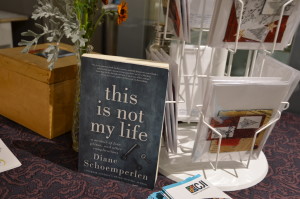 Inevitably, the Turn the Page book club discussions turned to the support provided to people in prison while they serve their sentences and the programs and support available during parole or upon release. Many people in attendance admitted to not knowing the reality facing people on the ‘inside’.
Inevitably, the Turn the Page book club discussions turned to the support provided to people in prison while they serve their sentences and the programs and support available during parole or upon release. Many people in attendance admitted to not knowing the reality facing people on the ‘inside’.
The past 5-7 years have seen a cut in federal funding to several prison support programs (inside and outside prisons) that have shown to be effective in reducing recidivism, building skills for reintegration and providing support to some of the most stigmatized prisoners, people who have sexually offended.
You might be interested in supporting these programs with a donation to keep them going. Or, as someone suggested at the book club event, you might want to write a letter to your Member of Parliament advocating for increased funding to support these valuable programs.
- Lifeline provides support and transitional housing to men who have served a life sentence as they prepare for reintegration into our communities. Funding for this program was cut in 2012/2013. Some Lifeline programs are still offered through various St. Leonard Society organizations.
- Circles of Support and Accountability is a Canadian-made restorative justice program for men and women who have committed serious sexual offences. CoSA allows the community to play a direct role in the restoration, reintegration, and risk management of people who are often seen with only fear and anger. COSA experienced the same severe federal funding cuts as Lifeline in 2014 and has spent a great deal of time figuring out how to support a nation-wide program of COSA chapters. They have even some sample letters already prepared which you could use to advocate for reinstated funding for COSA.
- Prison farms have been a part of 6 federal prison institutions since the establishment of correctional facilities in Canada. They were defunded and closed by the federal government between 2009 – 2013. Prison farms provided beneficial employability and training opportunities, time management and responsibility skills, animal therapy, productive labour and physical exercise, access to nature, individual and team building work, and training in farm management and operation. There are many advocating for the return of prison farms as a prosocial training opportunity for inmates. Project Soil published an excellent case study of the prison farms at Frontenac and Pittsburgh Institutions, both Correctional Services of Canada facilities in Ontario.
- Here is a 59 minute film about prison farms in Canada – Til the Cows Come Home.
If you’re super keen, someone suggested having a letter writing party – invite your friends, invite your neighbours!
There are certainly more prisoner support programs that are proven to work, but these three were discussion specifically at the event.
Also check out the call to action for opportunities to be involved in systems and societal changes.
Posted on: November 23rd, 2016 by Waterloo Region Crime Prevention Council
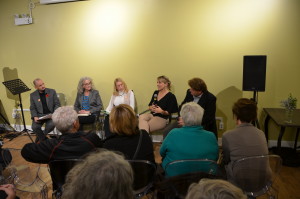 The Turn the Page book club stimulated a great deal of discussion about the stigma. Society, in general, has a negative stigma against people that have been in prison and often their family member and children too.
The Turn the Page book club stimulated a great deal of discussion about the stigma. Society, in general, has a negative stigma against people that have been in prison and often their family member and children too.
People began to ask questions: How do we change this attitude in society and within ourselves? Given that we have a federal prison for women right here in Waterloo Region, how can we help within our own community? How can we get involved?
We’ve pulled together a range of potential ‘calls to action’ that help to humanize people in prison & reduce the stigma of loved ones. As Diane and the panelists reminded us, people in prison will leave prison when their sentences end and return to our communities. Reintegration to life on the ‘outside’ doesn’t happen by magic.
There are countless ways to be involved, likely more than we have to share, but here’s a start.
To start.. Read the Book! If you didn’t get a chance the first time around, it’s still available to borrow at KPL, WPL and Cambridge or get it for sale at Wordsworth Books in Waterloo. We developed a reading guide that might be helpful for checking some of your assumptions and thinking broadly about this issues Diane challenges us with.
If you have a book club, get them to read the book too! We’ve even created a handy Reading Guide to accompany the book.
One of the best ways to start in this area is to work directly with or support the organizations that work with inmates and their families.
- STRIDE is a program of Community Justice Initiatives. STRIDE helps women in prison build informal networks of support that assist them as they reintegrate back to the community. They also prepare the community to receive them safely and supportively. CJI has several other programs that offer support to offenders.
- John Howard Society Waterloo-Wellington offers diverse prevention, diversion, intervention and educational services for children, youth and adults who are in conflict with the law or at risk of getting there.
- Elizabeth Fry Society for Kitchener Waterloo provides gender-specific services, support and advocacy for women within the community, involved in a judicial process or who are serving sentences at Grand Valley Institution for Women, a federal prison for women located in Kitchener.
- Volunteer at Grand Valley Institution – The Correctional Service of Canada has a volunteer program that works directly with recreational activities, classroom and workshop instruction, and cultural or chaplaincy activities and supports families of offenders or helping released offenders re-adjust to life.
These are all very different volunteer opportunities and if you are very interested, best to do the research and find the best fit for you and your interests. You might discover that you prefer a community based approach rather than a formal institutional setting.
Check out the ‘calls to action’ related to advocating for programs that work and creating system change.
Posted on: November 23rd, 2016 by Waterloo Region Crime Prevention Council
 At first glance, Diane Schoemperlen’s memoir “This Is Not My Life: A Memoir of Love, Prison, and Other Complications” seems straight forward, in its own way, the stuff of TV shows and movies…. An author meets a fellow volunteer at a Kingston soup kitchen whom she knows has been is in prison, they become friends, they eventually develop an intimate partner relationship, they try to navigate the world inside prison and outside prison, they try to manage life together on the outside, the author leaves the relationship that has become abusive and spends the next six years healing and putting her life back together.
At first glance, Diane Schoemperlen’s memoir “This Is Not My Life: A Memoir of Love, Prison, and Other Complications” seems straight forward, in its own way, the stuff of TV shows and movies…. An author meets a fellow volunteer at a Kingston soup kitchen whom she knows has been is in prison, they become friends, they eventually develop an intimate partner relationship, they try to navigate the world inside prison and outside prison, they try to manage life together on the outside, the author leaves the relationship that has become abusive and spends the next six years healing and putting her life back together.
After spending an evening with Diane at the Turn the Page Book Club hosted by the Friends of Crime Prevention we have a deeper understanding of the complexity of this story. The story of their relationship covers tough issues tied to root causes of crime, such as family violence, sexual violence, and problematic substance use. Schoemperlen is unflinching in assessing her own motivations for staying in the relationship, as she comes to know the shadow and stigma that institutionalization casts over inmates and their loved ones.
Maybe slightly unorthodox for your average book club, Friends also brought together a community panel of Jennifer Hutton (Women’s Crisis Services of Waterloo Region), Chris Cowie (Community Justice Initiatives) and Shannon Moroney, author of Through the Glass to discuss the themes of the book in more depth and draw some direct applications to our community.
From the discussions between Diane & the panelist and the question/answer period with the community readers, we covered more content and topics than your average university course! Discussion ranged from childhood abuse/trauma to incarceration rates, from restorative justice to the lack of helpful prison programs, from reintegration challenges for released inmates to stigma faced by loved ones and family members of inmates, from abusive relationships to support networks for families of inmates, from the prison industrial complex to… well, I think you get the idea. Diane’s is a personal story that shines a light, not only on her own experience, but deftly directs a laser beam at the prison system in Canada. Diane skillfully tells a political story through her own story – a story that concerns us all.
Over the course of the discussion, people began to ask questions: What we can do to change a system that is clearly not working? Given that we have a federal prison for women right here in Waterloo Region, how can we help within our own community? How can we get involved?
We’ve pulled together a range of potential ‘calls to action’ and avenues for participating in creating change. Clicking on the links here will get you started.
If you decide to take some action, we would love to hear about it! Get in touch with Juanita Metzger to share your story.
Posted on: November 16th, 2016 by Waterloo Region Crime Prevention Council
When you host a public book club, you just never know how things will unfold, much less when you host one with the title “Prisons, Justice and Love”! But we couldn’t have had a more engaging night if we had tried!
Friends of Crime Prevention were pleased to host the first ever “Turn the Page” Book Club with Diane Schoemperlen in November 2016. Scroll through the photos below for a short photo essay of the evening together with community partners, neighbours and Friends.
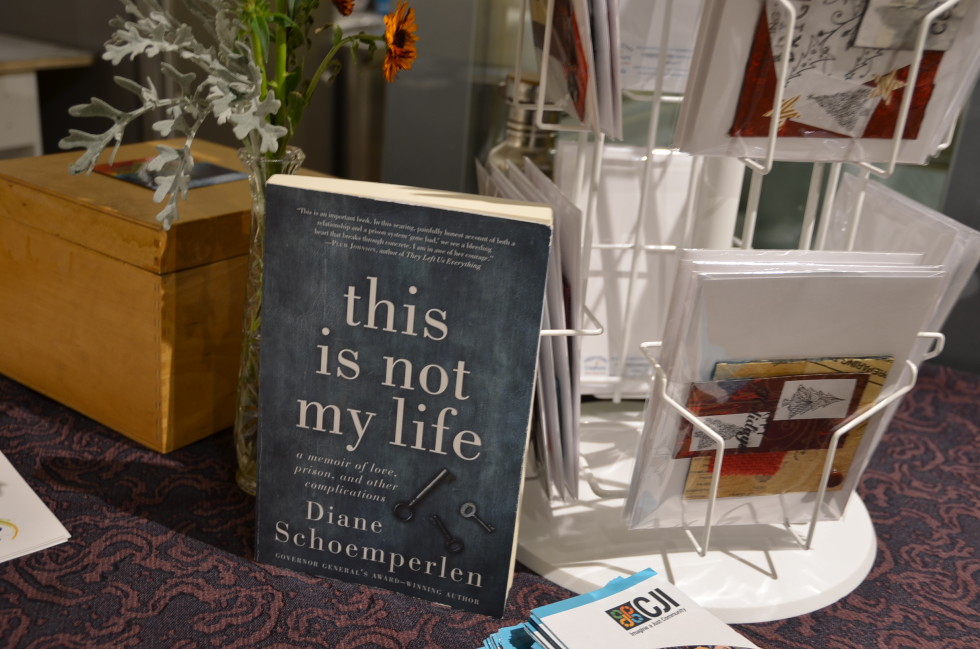
This is not my life by Diane Schoemperlen – our first book club selection for the Turn the Page Book Club focused on prisons, justice and love. A very entangled combination!
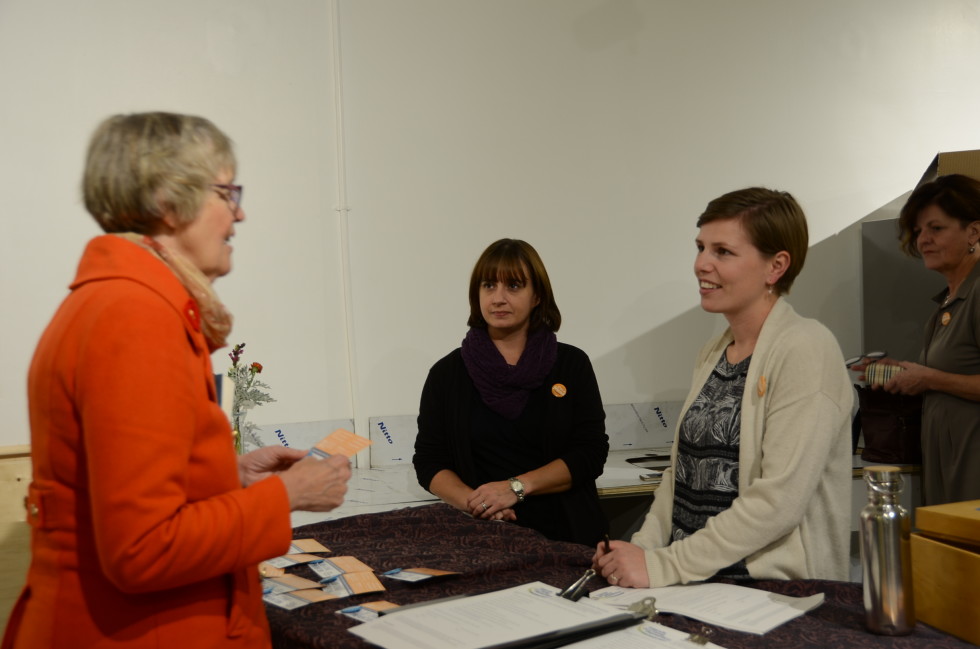
Friends of Crime Prevention, Jenn Robinson (middle) and Lisa Armstrong (right) were the most friendly greeters! Great to see so many new faces.
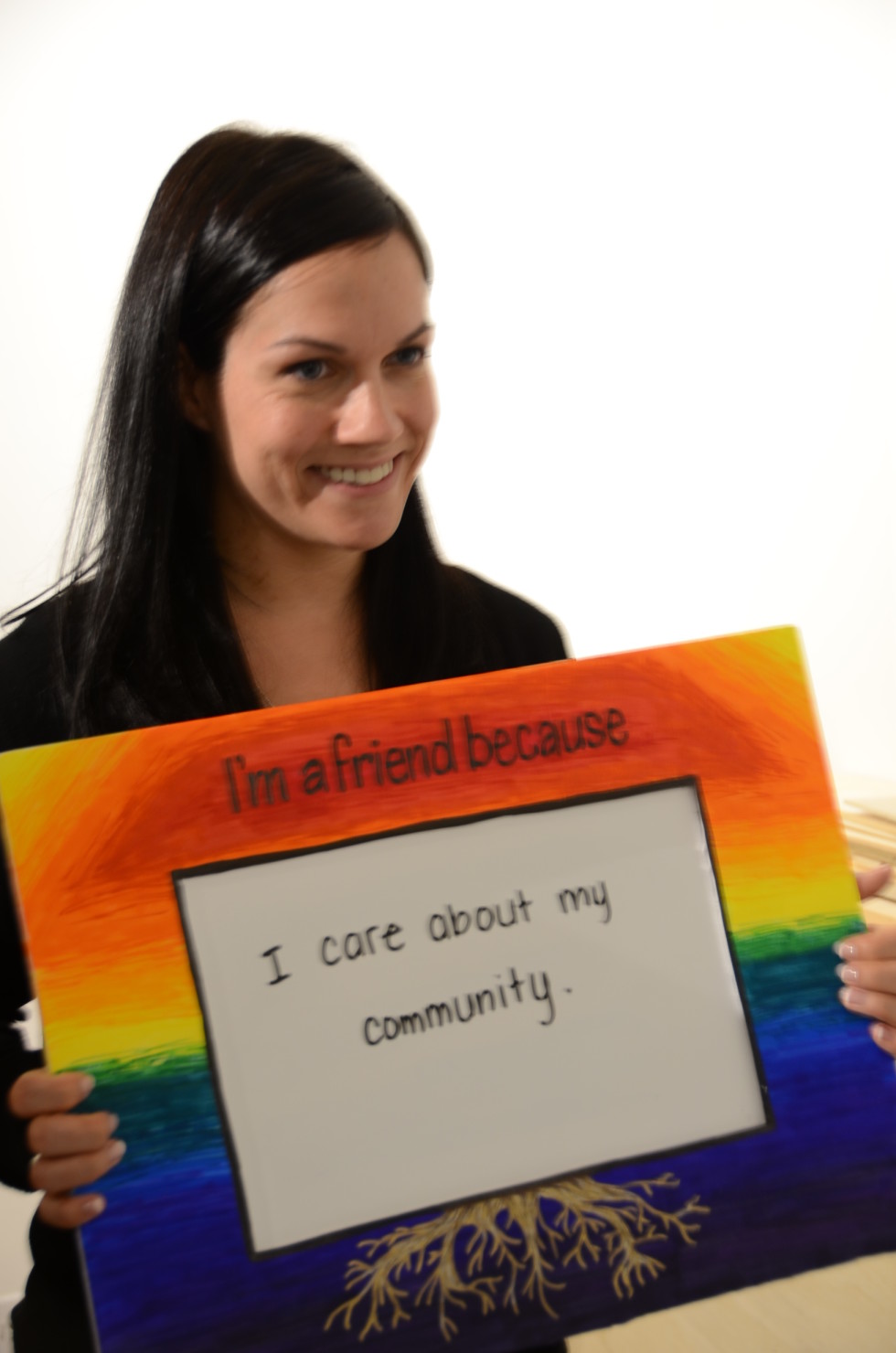
As people gathered for the evening, Friends of Crime Prevention had the opportunity to let us know why they are a Friend. Jeanean Thomas – because I care about my community
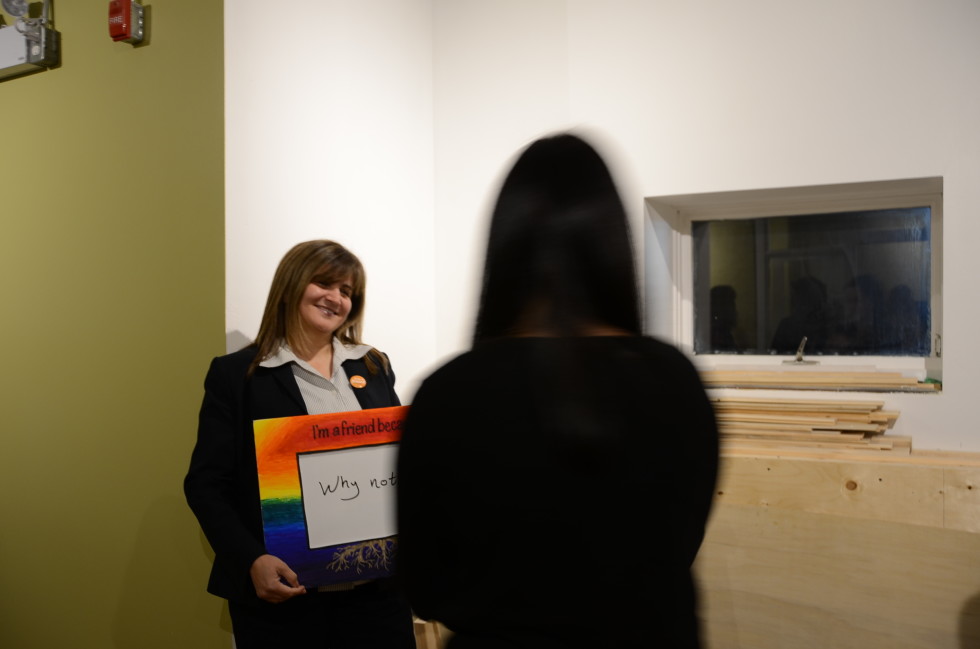
As people gathered for the evening, Friends of Crime Prevention had the opportunity to let us know why they are a Friend.
Pari Karem – Why not?!
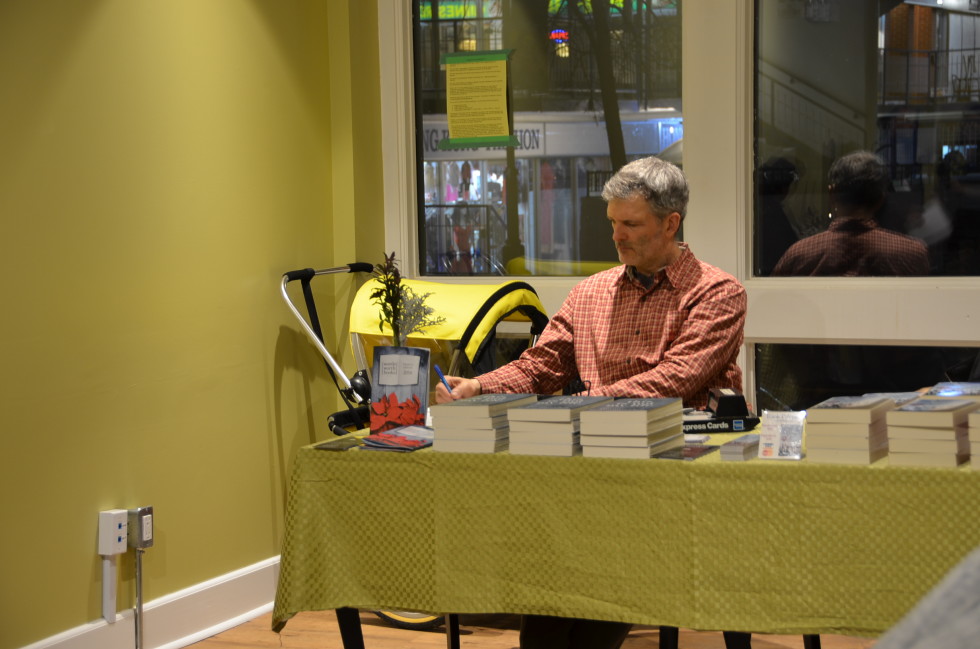
Thanks to John and Wordsworth Books for bringing extra copies of Diane’s book for sale!
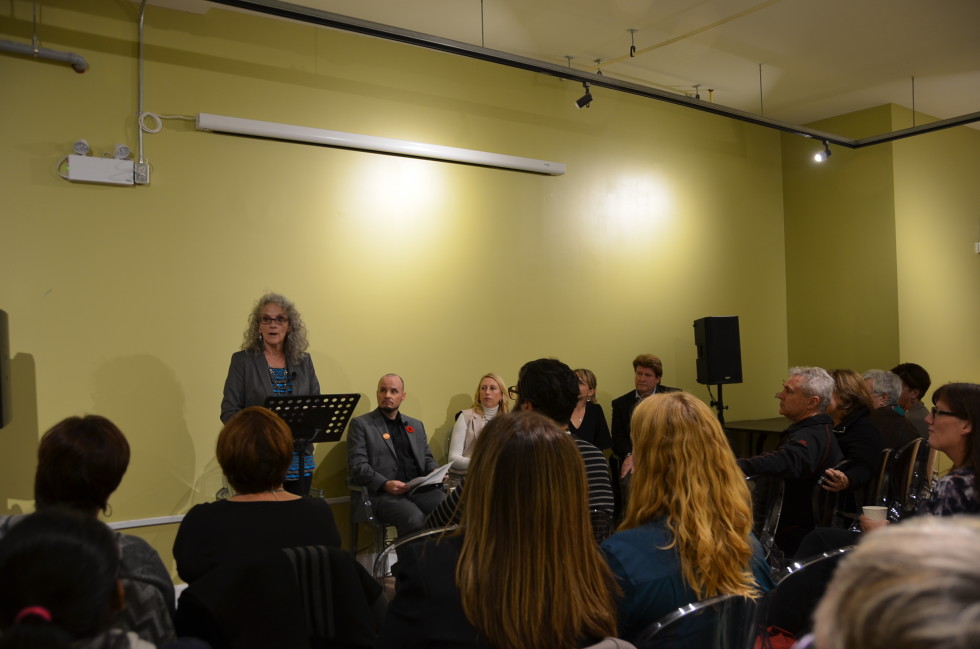
The inaugural Turn the Page Book Club was held at Fresh Ground, a new cafe & community space developed by The Working Centre.
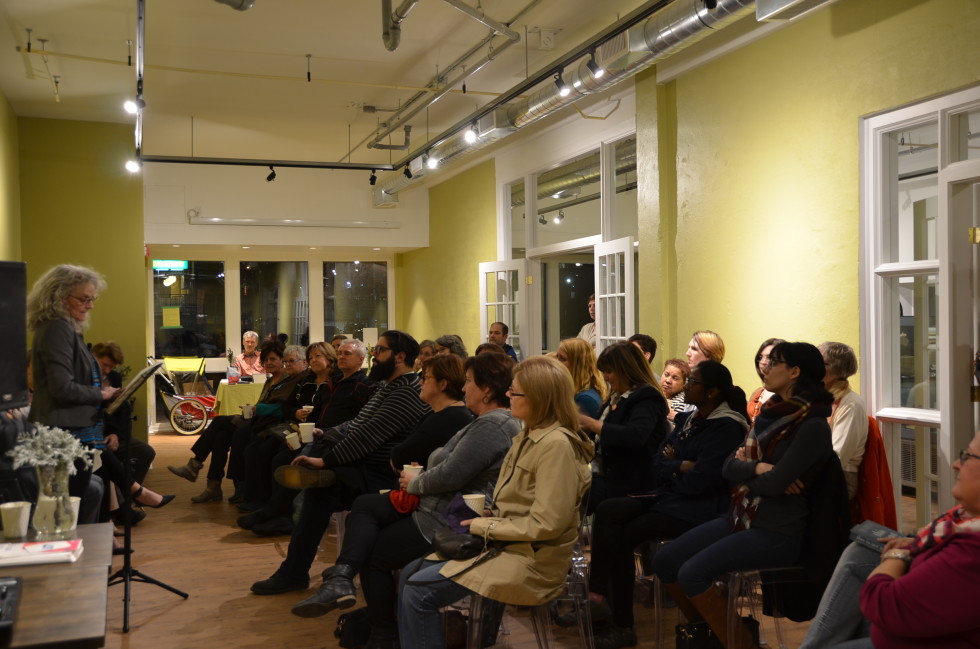
48 people gather to hear Diane read from her new book “This is Not My Life: A Memoir of Love, Prison, and other Complications.
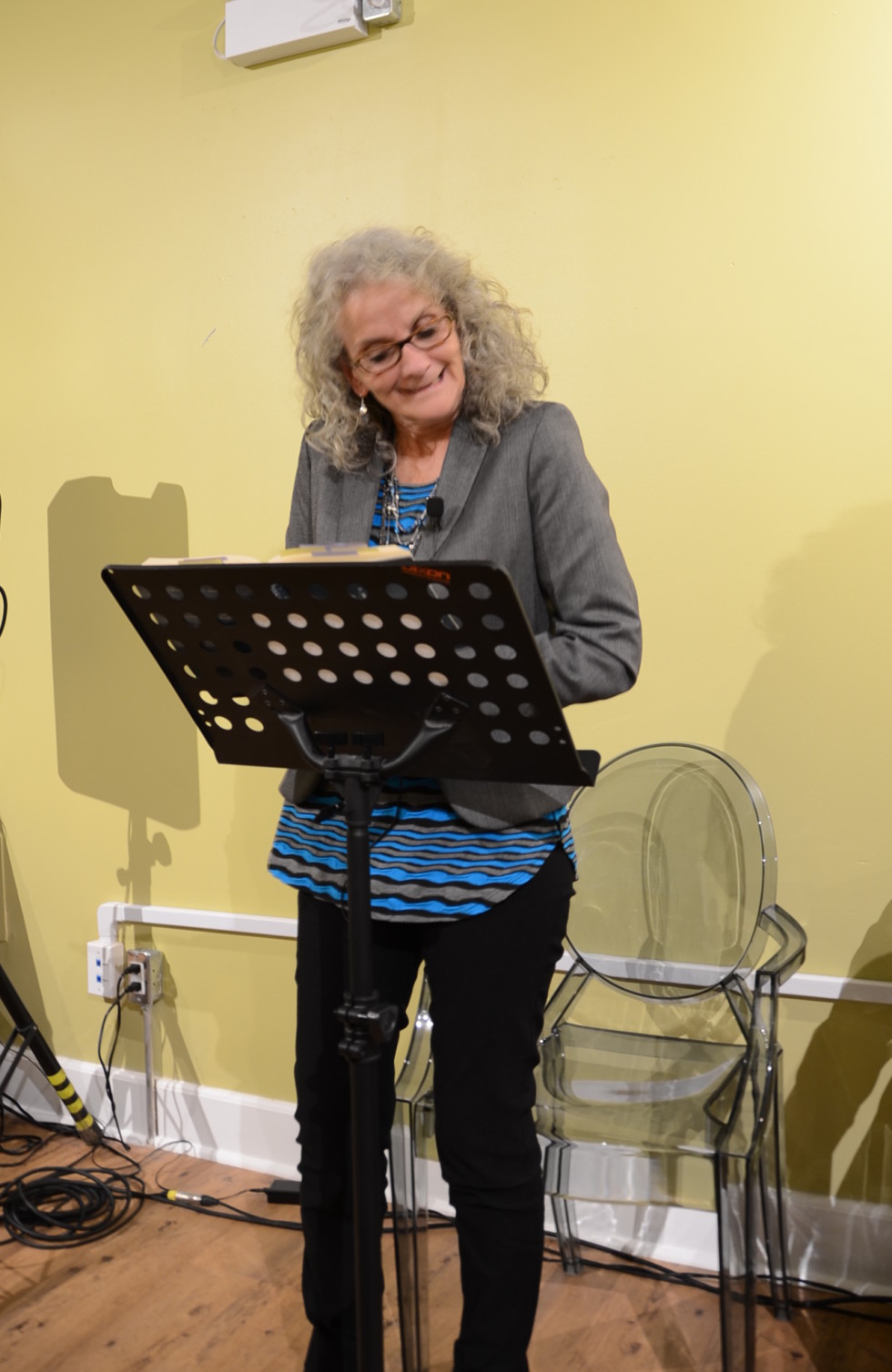
Diane reads the first line of the her book, a first line she is quite proud of! You’ll have to read the book to find out why this line still makes her laugh! Or listen to her interview with The Current on CBC Radio where the host reads it out loud.
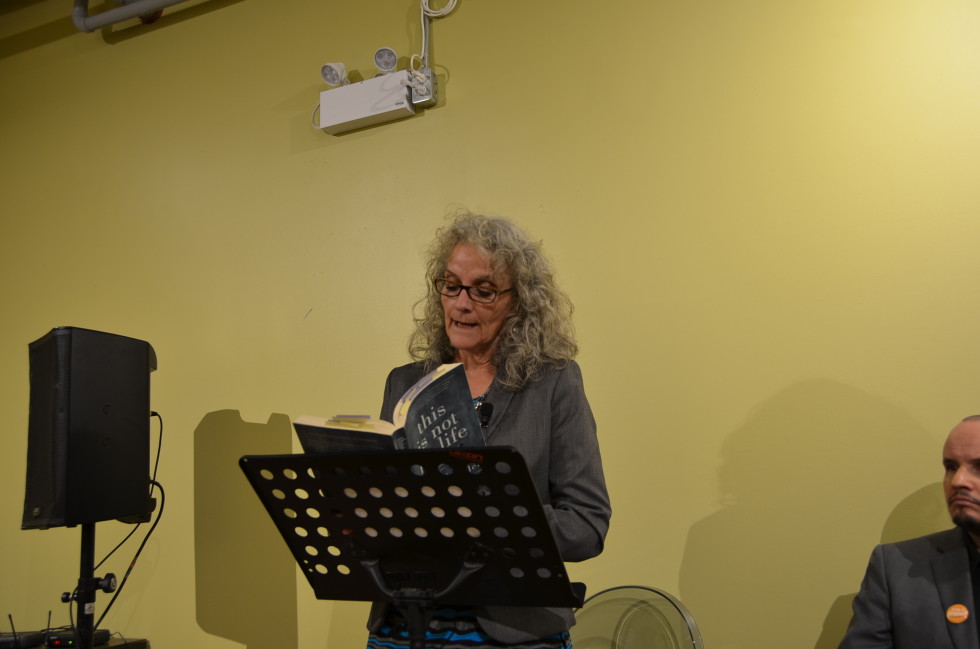
Diane reading some of the more emotionally challenging parts from her book.
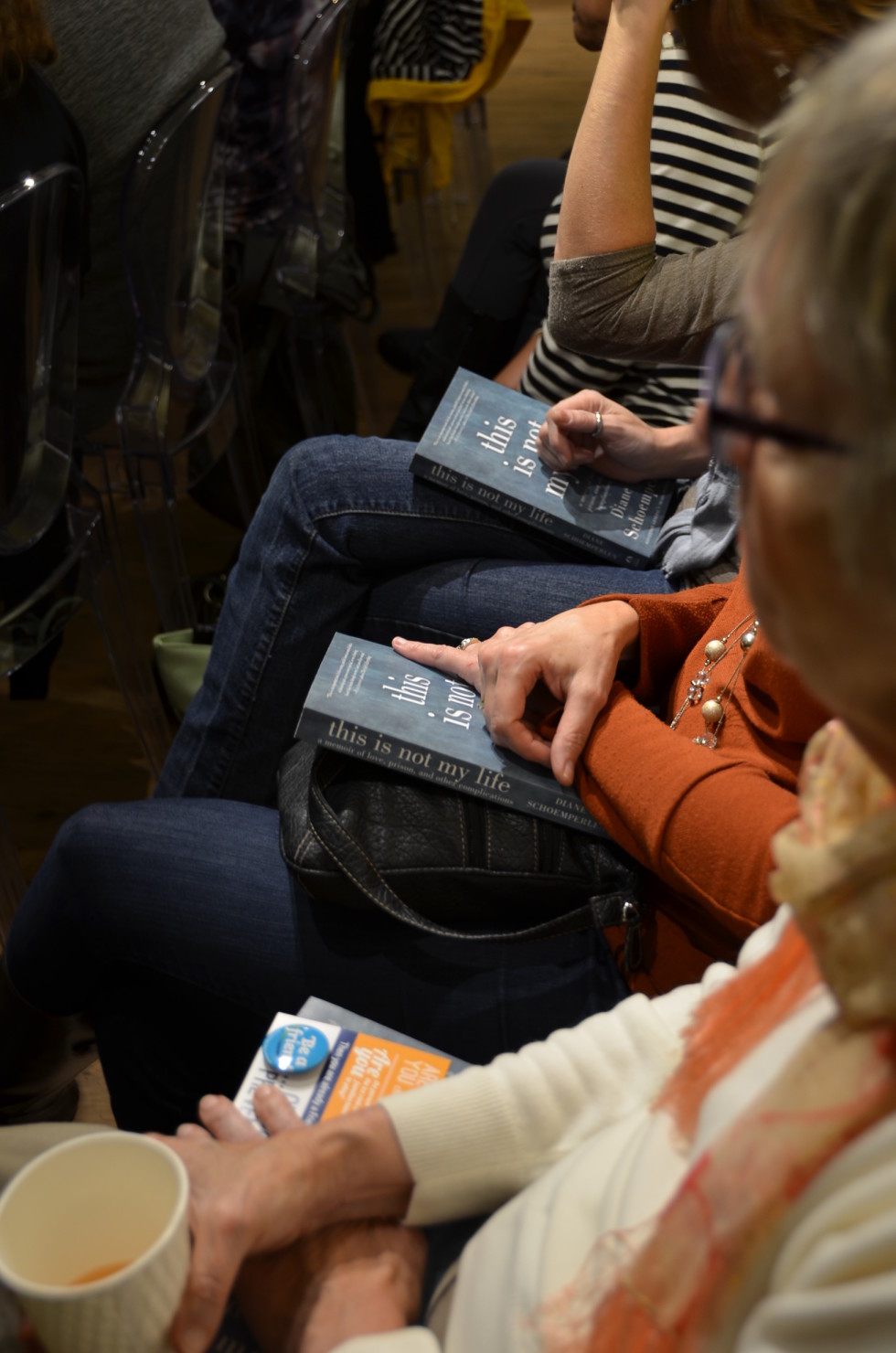
People came prepared! Many had read the book and had very insightful questions. Others came because of the topic, but bought the book by the end of the night!
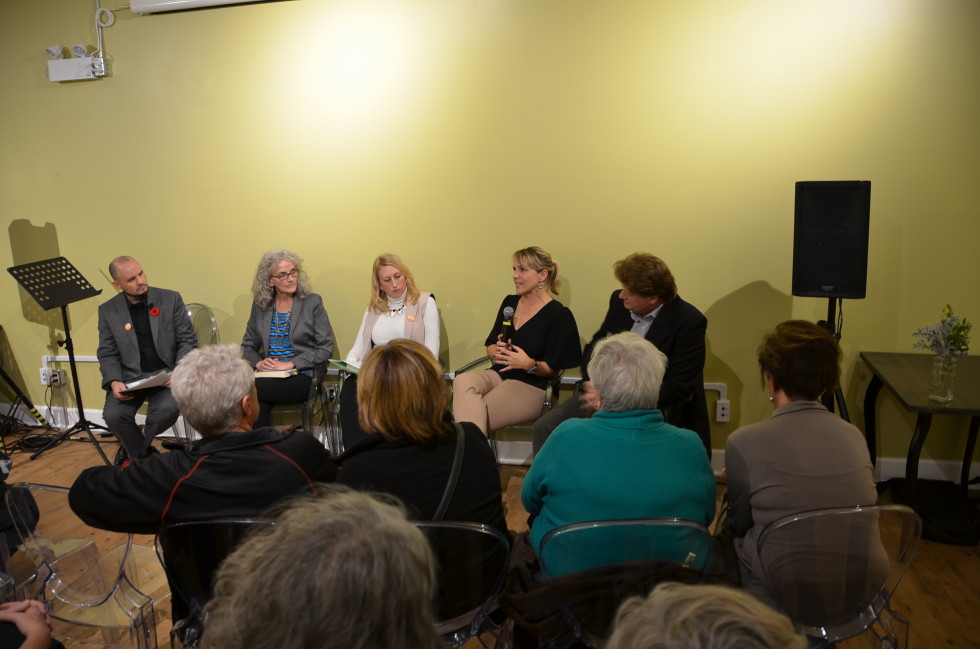
In addition to a talk and reading by Diane, we invited additional panel members from the community & beyond to complement the discussion of prisons, justice, stigma and relationships. From left: Mike Farwell, Moderator; Diane Schoemperlen, Author; Jen Hutton, Women’s Crisis Services Waterloo Region, Shannon Moroney, Author of Through the Glass; Chris Cowie, ED Community Justice Initiatives
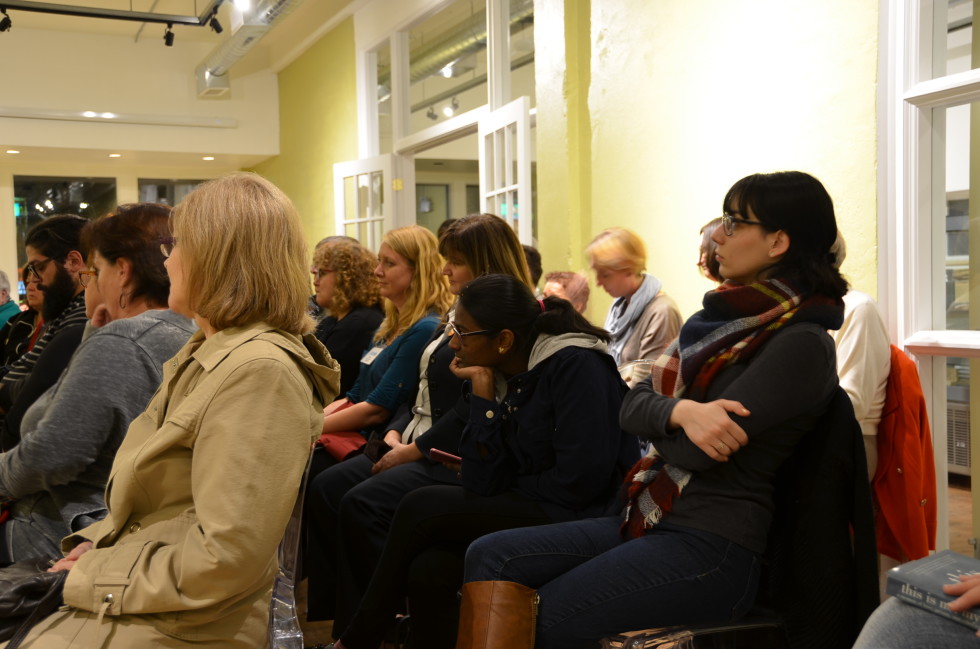
A very intent and listening audience!
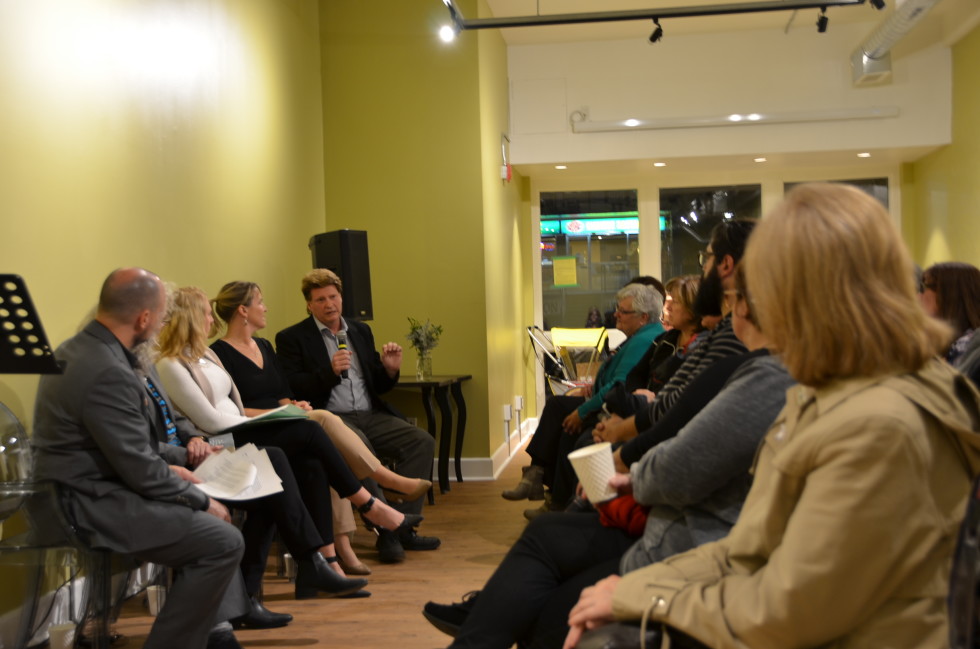
Chris Cowie from Community Justice Initiatives shared about the agency’s Restorative Justice mandate and how a more restorative process in prisons could help in countless ways i.e. better integration into society upon release, deeper understanding of the nature of offending, development of new skills to deal with conflict. Teaching and using restorative justice early can also be a prevention tool.
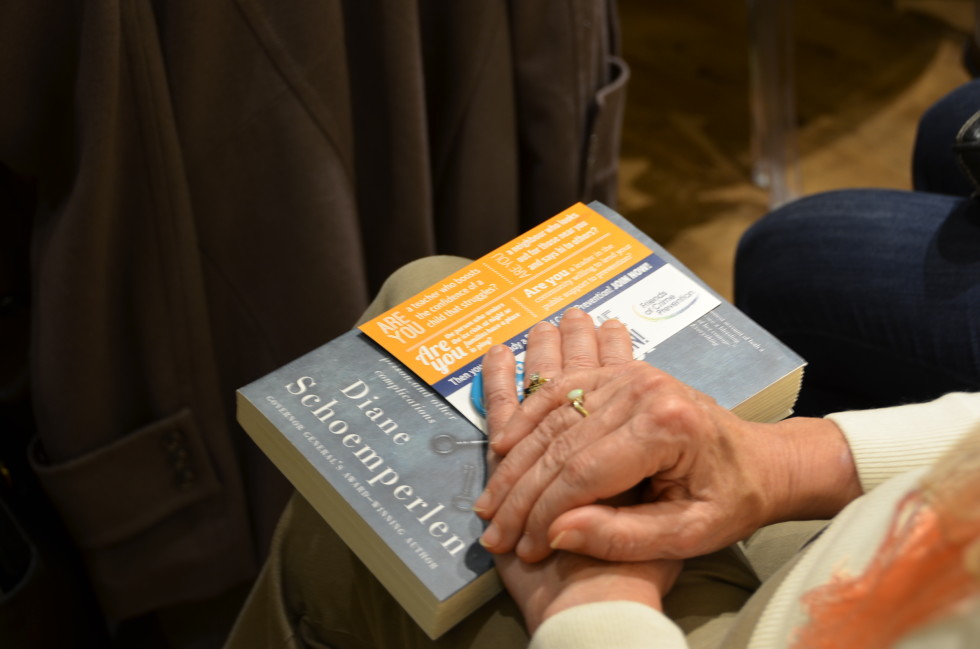
With all the new faces in the audience, it was a great opportunity for many to learn about w hat it means to be a Friend of Crime Prevention!

It only take a few minutes to become a Friend of Crime Prevention – just like Jen Hutton!
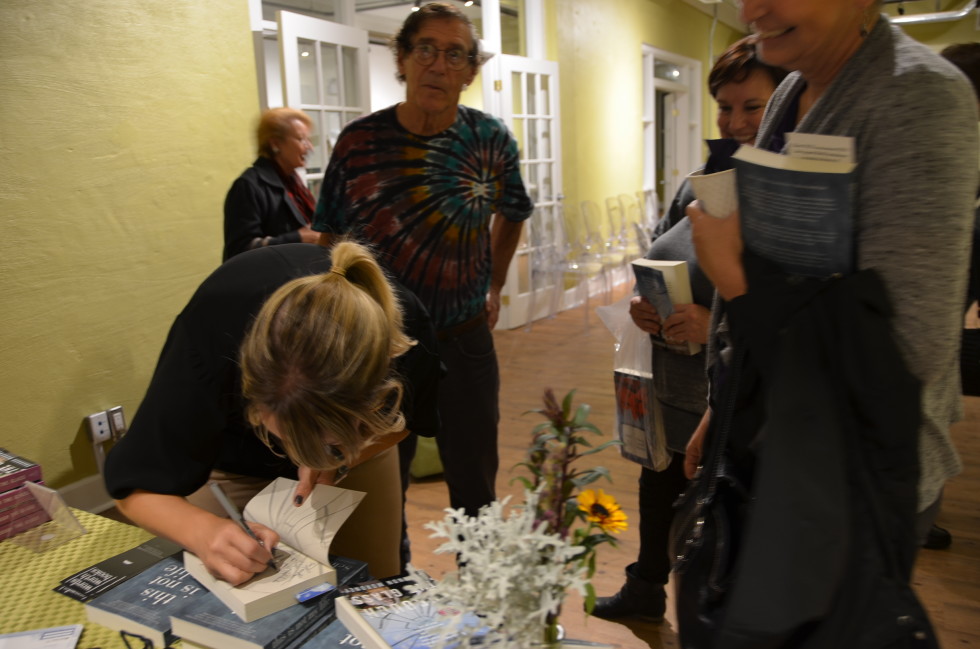
Both Diane and Shannon took time to sign books for anyone who wanted. Also a chance for great conversations.
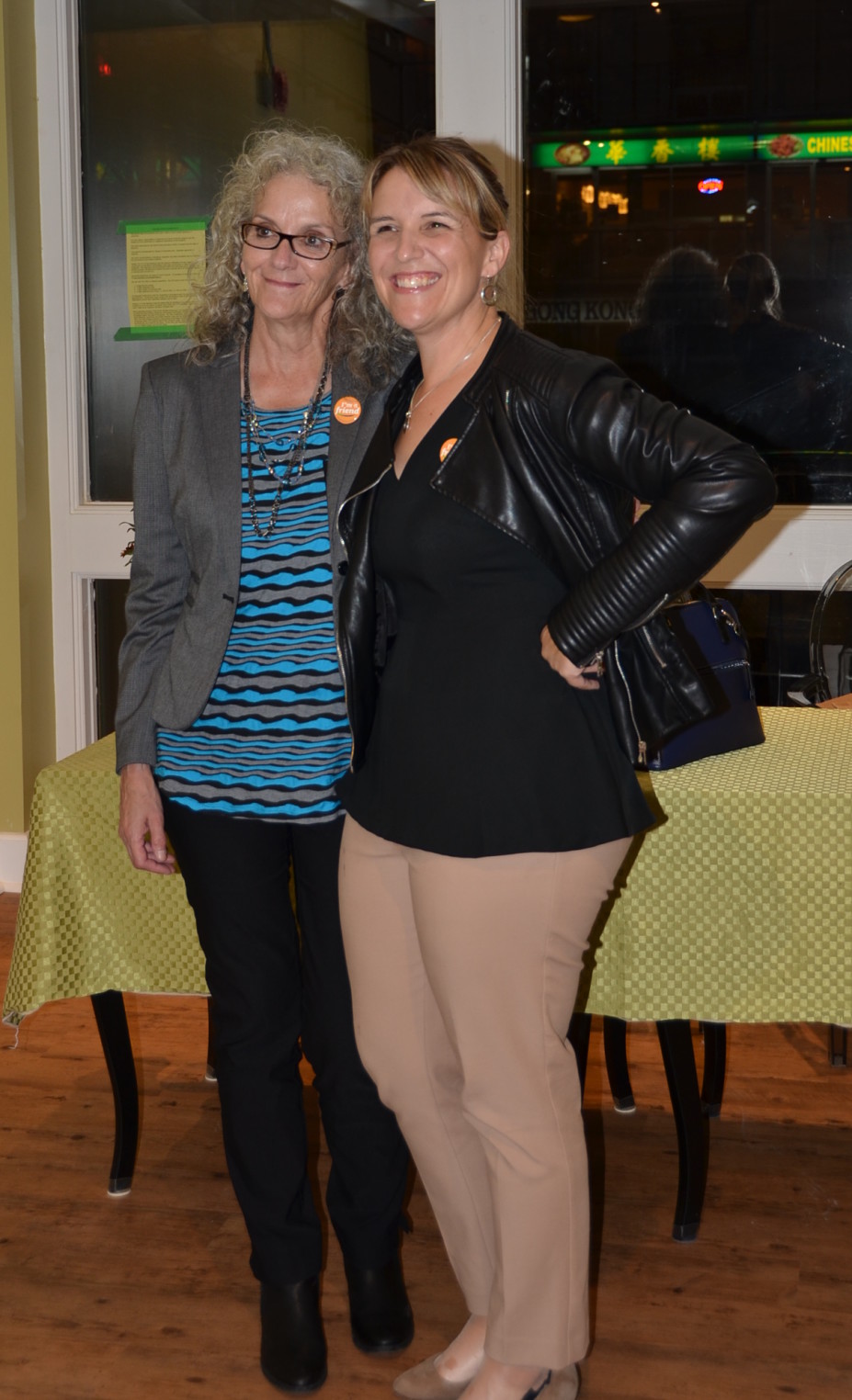
Diane and Shannon proudly display their “I am a Friend” buttons. Diane and Shannon were made honorary Friends and join Howard Sapers and Sir Neville, a guide dog, as Honorary Friends of Crime Prevention.
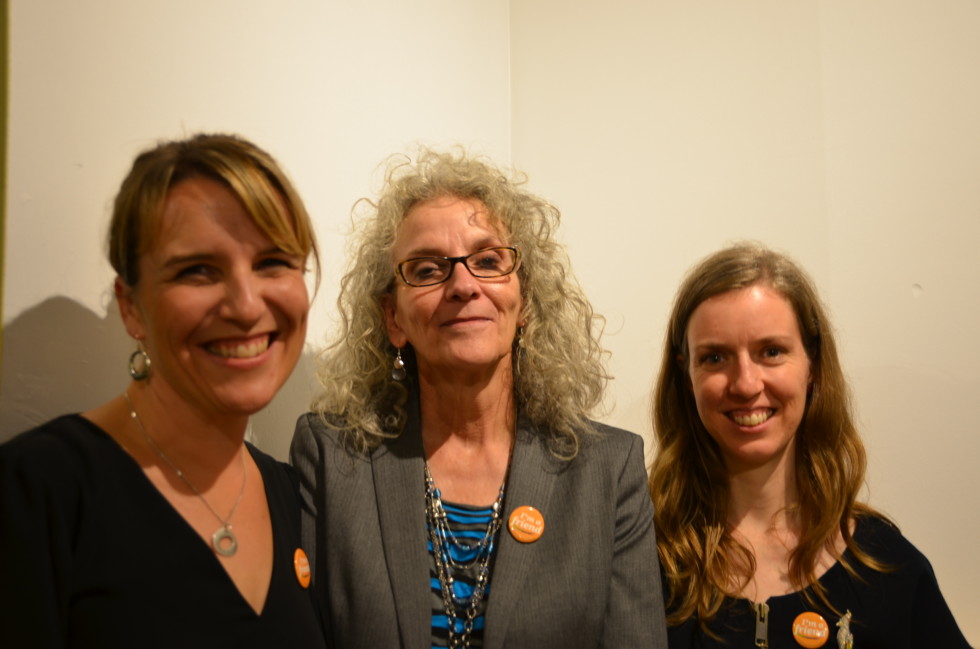
It was very special to have Shannon and Dianne together in the same evening. Shannon acted as a mentor to Diane during the writing of This is Not My Life. Shannon wrote her book Through the Glass about the life upheaval after husband confessed to the sexual assault and kidnapping of two women. Both Diane and Shannon have rich stories from which our community can learn so much! Diane and Shannon are pictured with Sarah Anderson, event organizer and facilitator from the Crime Prevention Council.
Posted on: October 19th, 2016 by Waterloo Region Crime Prevention Council
Waterloo Region – The Friends of Crime Prevention network is hosting an evening with Diane Schoemperlen, author of This Is Not My Life on Thursday, November 3, 2016. This book recounts the story of her long-term relationship with a prison inmate and covers tough issues related to root causes of crime, such as family violence, sexual violence and problematic substance use.
This is not my Life is the first book selection in the Turn the Page Book Club – a community reading project initiated by Friends of Crime Prevention – to get people thinking and talking about justice, stigma and creating safe communities.
Join us for an evening with the author Diane Schoemperlen:
Thursday, November 3, 2016
7:00 pm – 9:00 pm
Fresh Ground Café, 256 King St. East, Kitchener
Mike Farwell will facilitate a panel discussion about justice, institutionalization and preventing emotional abuse.
About Friends of Crime Prevention
Friends of Crime Prevention is a growing network of community members dedicated to advancing the work of crime prevention through social development.
About the Waterloo Region Crime Prevention Council
The Waterloo Region Crime Prevention Council advances ideas and actions that alleviate root causes of crime and improve social well-being. As a community collaborative it engages and connects citizens, decision makers, and service providers in order to reduce crime, victimization and fear of crime.
For more information, please contact:
Sarah Anderson, Community Engagement Coordinator
Tel: 519-575-4400 Ext. 3548
Email: sanderson@regionofwaterloo.ca
 All of the calls to action already mentioned in the previous blog posts (humanizing people in prison & advocating for programs that work) help to create and strengthen system change in big and small ways. The work of larger structural change is long term, often slow work: Not for the faint of heart, but everyone can still play a role.
All of the calls to action already mentioned in the previous blog posts (humanizing people in prison & advocating for programs that work) help to create and strengthen system change in big and small ways. The work of larger structural change is long term, often slow work: Not for the faint of heart, but everyone can still play a role.



















